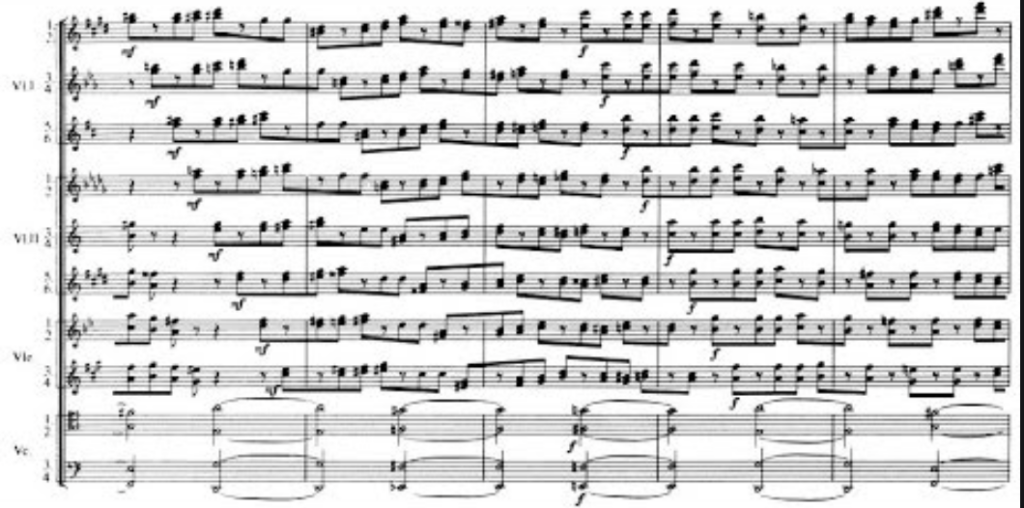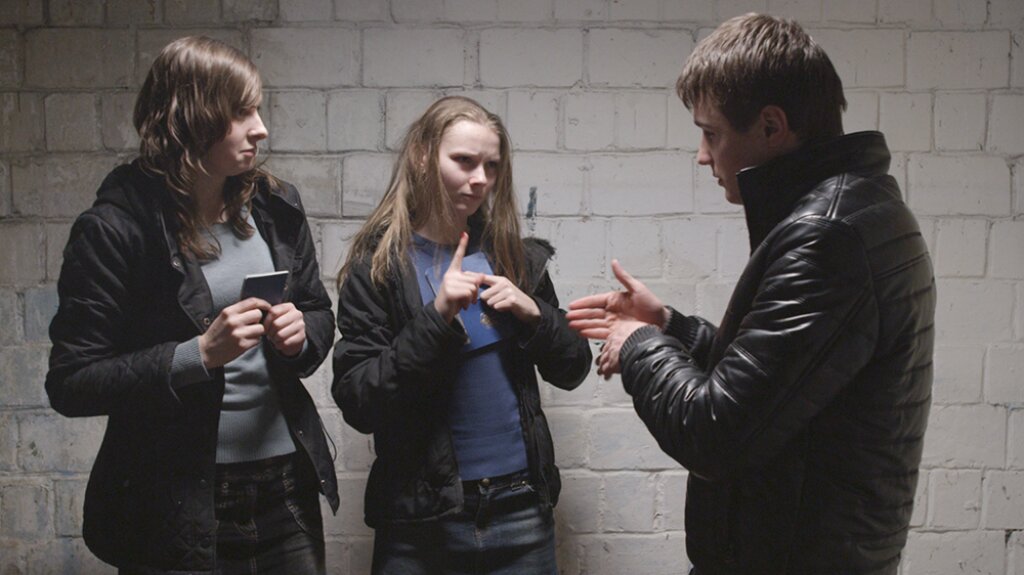This is the eighth installment of “Rereading Akunin” focusing on The Winter Queen. For the introduction to the series, and subsequent installments, go here.
Chapter Eleven, which tells the story of a very long night
A very long night, indeed. Where most of the previous chapters were lucky if they could claim to contain one significant plot twist, Chapter Eleven sees a parade of odd characters traipse their way through Fandorin’s newly rented room, starting with Fandorin himself (in disguise), followed by the pompous windbag Pyzhov (In the false guise of Fandorin’s helper), the not-at-all dead Amalia Bezhetskaya (initially disguised as her own ghost), and Bezhetskaya’s henchmen (needing no disguise). The latter finally dislodge Fandorin from his lodgings in order to take him to the dock and fit him with the nineteenth-century equivalent of concrete overshoes. The chapter ends with not one, but two attempts at murdering Fandorin, in quick succession. Since this is only the first book in a series, you will not be at all surprised to hear that our hero survives, and can look forward to several more deuces of clever disguises and brushes with death.
If this chapter is a bit of a whirlwind, it is due less to the acceleration of the plot than to the rapid cycling through multiple generic modes, linguistic registers, and emotional resonances. We should also note that Akunin accomplishes all this without shifting our attention away from Fandorin; in other chapters, we occasionally leave Fandorin behind to follow our omniscient third-person narrator elsewhere, while this chapter starts out pretending to do so, only to reveal that the person the narrator has been following is none other than Fandorin himself. The beginning of the chapter is a bit of a narrative reset, describing life on the Isle of Dogs, narrowing the focus to a particular guesthouse, and then drawing our attention to one of its residents:
Take, for instance, that French artist with the shaggy red hair who has just gone scurrying past his landlord and into the corner room. The frog eater has money, all right— he paid for a week in advance with no arguments.
Finally, after a glance around at the window to make sure that the curtains were not parting, he lifted the red-haired wig off his head and was revealed as none other than Erast Petrovich Fandorin.
Why the misdirection? Let me address this by appropriating Fandorin’s most annoying verbal habit. It signals a break in mood from the previous chapter—that’s one. It introduces his facility for disguise, which will become one of his signature moves—that’s two. Most important, it serves as a signal that Fandorin is now undergoing a rapid metamorphosis, from naive boy detective to the budding professional who will learn to expect betrayal. Oh, right. That’s four. I almost forgot.
Fandorin will never be a hardboiled detective; it doesn’t seem to be a genre of particular interest to Akunin, which, considering the author’s almost obsessive attention to genres and subgenera, is saying a lot. In any case, a hardboiled Fandorin would be something of an anachronism. But the term does suggest something important about what’s going on in this novel. “Hardboiled” is a past participle, connoting the result of a process rather than an inborn state. When we read The Winter Queen, we are watching as the clay is molded, the steel is tempered, and the egg is boiled. The novel of formation lends itself to such metaphors, even if the metaphors themselves are anti-novelitic in their temporality. Forging, boiling, and all lead to dramatic results, but are quite boring to watch. For the novel, the results are less important than the process it depicts.
Thus the first section of the chapter to focus on Fandorin’s perspective shows a growing double consciousness:
But no, His Excellency had used some other allegory, something about a moth. The moth had flown into the flame all right, flown in exactly as expected. And it had almost burned its wings. Serve the fool right. After all, it was clear enough that Bezhetskaya and Hippolyte had some interest in common. Only a romantic blockhead such as a certain titular counselor (who had, in fact, been promoted to that rank over the heads of other, more worthy individuals) could have seriously believed in a fatal passion in the Castilian style!
Fandorin is thinking about Zurov and Bezhetskaya, but the most important thoughts here are about Fandorin himself. Again we are dealing with trite metaphors (moths and flames), one that Fandorin had previously rejected, only to find it applicable to his present situation. More to the point, a now slightly more worldweary Fandorin can look back at his younger self (younger by about two weeks) with rueful embarrassment.
Fandorin hasn’t entirely lost his naiveté. In point of fact, each chapter will see him face disillusionment after disillusionment. Thus when he reads the contents of the blue attaché case and discovers that Azazel has agents all around the world, he is appalled at the idea that one of them might be a Russian state counselor: "A full state counselor— and a nihilist? It simply didn’t make sense.” Attentive readers, especially attentive mystery readers, might recall that Fandorin does actually know a state counselor, and that narrative economy should therefore point our suspicions in his direction.
Fandorin’s inability to suspect the truly suspicious is highlighted by his subsequent encounter with Pyzhov, who makes his way into his hotel room. Pyzhov’s flowery language, so different from that of Fandorin or the narrator, is deliberately maddening, but one of his many banalities looks particularly significant upon rereading: “Can a Russian fail to know another Russian?” Fandorin’s own experience will provide an unequivocal answer: Yes. Yes, he can.
After Pyzhov leaves, Fandorin is visited by the “ghost” of Bezhetskaya, a strange ruse to try to get Fandorin to talk. After earlier chapters’ references to “The Queen of Spades,” we seem to be on the decidedly un-Romantic territory of debunking fraud rather than awe before the numinous. This is less “The Queen of Spades” and more “Scooby Doo Meets Batman.”
One Bezhetskaya is exposed, the chapter’s attention to language and speech genres continues:
“So it was all a show?” Fandorin asked in a quavering voice as his courage began to return. “Bravo. You are a magnificent actress. I am glad that my bullet missed you. Such a great talent would have been lost—”
To which Bezhetskaya responds:
“Don’t forget the gag,”
Now Fandorin is wrapped up an a sack and thrown into the water, yet even here, Fandorin can’t help but compare his actual plight to his adolescent romantic imagination. His inner monologue has a pathos that rival’s Pyzhov in its pomposity, only to be frustrated by the matter-of-fact conversation between his would-be murderers as they try to decide where they’re going to eat:
He had sometimes reduced himself to sentimental tears by imagining the words with which friends and enemies would remember him, the hero who met an untimely end, by rehearsing the speeches that would be pronounced over the gaping pit of his grave. One might say that his entire youth had been spent in dreams of this kind. Imagine, then, the young man’s indignation when he heard what trivia formed the subject of the prattle between those who believed themselves his murderers! Not a word about the man over whose head the somber waters had only just closed! A man with a mind and a heart, with a noble soul and exalted aspirations!”
Fandorin survives and makes his way back up to the dock, only to find himself held at gunpoint by the odious Pyzhov. He is saved at the last minute by a mysterious gunman (to be identified in the next chapter), but before this happens, he shouts: “Judas Iscariot! You sold your homeland for thirty pieces of silver!”
I agree with Bezhetskaya. Can we have that gag, please?



